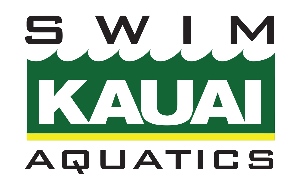Safe Sport Reporting Information
- SKA is committed to providing a safe environment for all of its athletes. To that end, SKA has a Safe Sport Coordinator, Troy Nelson, who is an adult who has volunteered to be available to any athlete who is concerned about the conduct of coaches, staff, volunteers, or other athletes and wants to talk about it. SKA has also put in place numerous policies and procedures that are meant to foster an environment that is safe for all athletes.
- USA Swimming and the U.S. Center for Safe Sport have reporting systems to deal with Safe Sport concerns. Comprehensive information is available HERE.
- To deal with a Safe Sport concern, contact USA Swimming at (719) 866-4578
- Contact the U.S. Center for Safe Sport to make a report. Call 833-5US-SAFE (587-7233) or use the online reporting form.
- To report anonymously, Text anonymous tips to 888-270-SWIM (7946)
- SKA Grievance Procedures
Swim Parent/Volunteer Development
- SKA's Safe Sport Policies:
- Minor Athlete Abuse Prevention Policy (MAAPP)
- Best Practice Guideline
- Athlete Code of Conduct
- Coach Code of Conduct
- Parent Code of Conduct
- Action Plan to Address Bullying
- Electronic Communication Policy
- Locker Room Policy
- Photography Policy
- Permission Form - Adult Travel w/ Unrelated Minor Athlete
- Permission Form - Mental Health Care Professional
- Permission From - Licensed Massage Therapist
Swim Kauai Aquatics follows the USA Swimming Safe Sport Best Practices:
- Parents should be encouraged to appropriately support their children’s swimming experience.
- All swimming practices should be open to observation by parents.
- Coaches should not initiate contact with or accept supervisory responsibility for athletes outside club programs and activities.
- When only one athlete and one coach travel to a competition, at the competition the coach and athlete should attempt to establish a “buddy” club to associate with during the competition and when away from the venue.
- Relationships of a peer-to-peer nature with any athletes should be avoided. For example, coaches should avoid sharing their own personal problems with athletes.
- Coaches and other non-athlete adult members should avoid horseplay and roughhousing with athletes.
- When a coach touches an athlete as part of instruction, the coach should do so in direct view of others and inform the athlete of what he/she is doing prior to the initial contact. Touching athletes should be minimized outside the boundaries of what is considered normal instruction. Appropriate interaction would include high fives, fist bumps, side-to-side hugs and handshakes.
- Coaches should avoid having athletes as their favorites. They should also avoid creating a situation that could be perceived as them having favorites.
- Gift-giving, providing special favors or showing favoritism to individual athletes is strongly discouraged.




